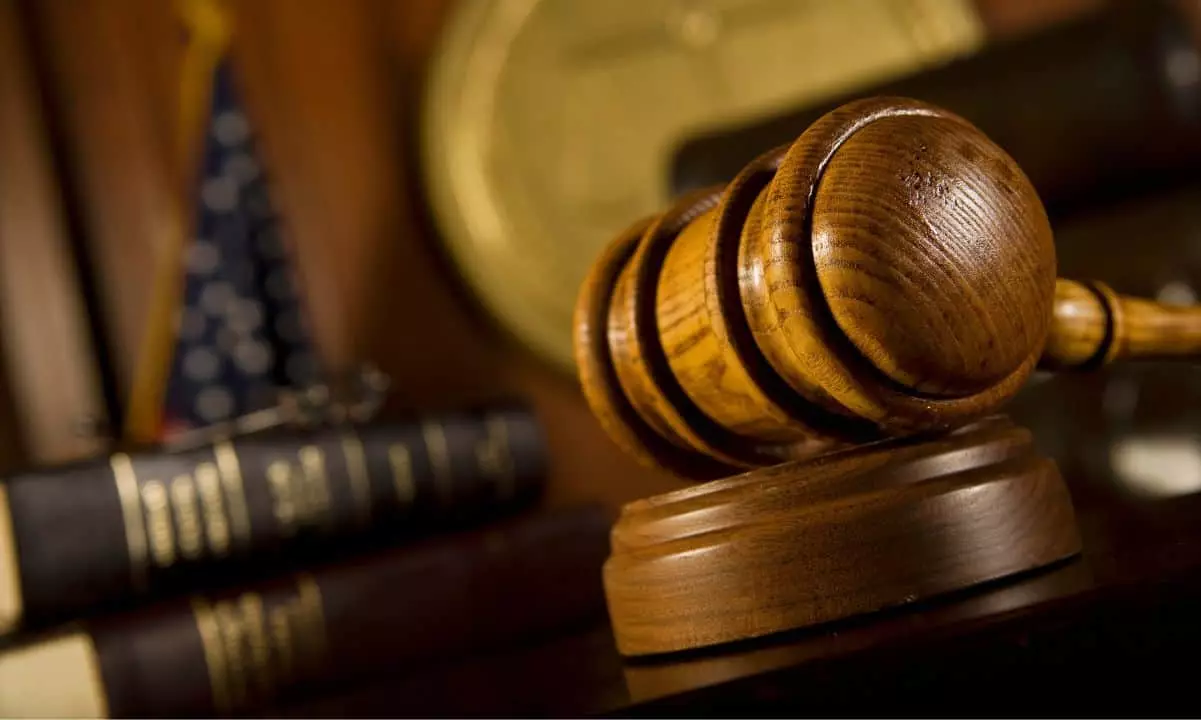In an unprecedented legal battle, a man is pursuing nearly £500 million ($646.4 million) from Newport Council in an attempt to retrieve 8,000 Bitcoin (BTC) he alleges were lost during a hard drive disposal incident back in 2013. James Howells, the plaintiff, claims that a simple mix-up led to his hard drive being thrown away at a recycling center, and nearly a decade later, he remains determined to recover what he considers an astronomical fortune—especially given the soaring value of Bitcoin in recent years.
Howells’s lawsuit is not just about monetary compensation; it’s a dramatic plea aimed at compelling the council to permit an excavation of the landfill site where he believes his hard drive lies buried. The 39-year-old tech-savvy individual had mined his Bitcoin when it was still in its infancy, acquiring a sizable number at a remarkably low cost. The rise of Bitcoin’s value to an all-time high (ATH) of $73,737 earlier this year has transformed Howells’s digital cache from a past investment into a potential goldmine.
Although Howells voices that his claim reflects a valuation at peak prices, he stresses that the goal of the lawsuit is not a mere money grab. Instead, he intends to leverage the situation into an agreement with Newport Council, potentially avoiding a protracted legal battle. Interestingly, he has put together a team of excavation experts, offering to undertake a £10 million ($13 million) excavation at no cost to the council. He further pledges to give 10% of the recovered Bitcoin’s value back to the council, an enticing incentive that raises questions about the wisdom of ignoring this offer.
At the crux of the conflict is a fundamental disagreement about ownership. Newport Council’s lawyers assert that the hard drive is legally theirs, given it was discarded by Howells. They characterize the situation as a straightforward case of negligence rather than an intentional loss of valuable assets. Conversely, Howells argues that he never intended to abandon the drive, claiming that miscommunication amid a home cleanup led to its disposal. He emphasizes the personal nature of the incident, arguing that circumstances rather than intentions resulted in this legal tangle.
As legal proceedings loom closer, the stakes escalate. Howells insists that the hard drive is located in “Cell 2 – Area 2” of the Docksway landfill, with experts giving a significant 80% chance of successfully retrieving data from it. However, the council is resolute, claiming that excavation activities are prohibited under their environmental permits. This sets the stage for an intricate clash not just about money, but also about the meaning of ownership and the responsibilities entailed by it.
Besides the recovery of lost wealth, this case has broader implications for the future of the Newport landfill itself. Howells’s excavation team professes that they can carry out the operations with the assistance of AI, ensuring safety while also proposing methods of modernizing the facility, which has faced criticism for repeatedly breaching environmental regulations since 2020. This proposal may provide Newport Council an opportunity to address both Howells’s claims and the urgent need for ecological improvement, turning a personal battle into a community-wide concern.
Nonetheless, the council appears uninterested, having reportedly disregarded numerous communications from Howells. The dilemma begs the question: should local governments be held accountable not just for their legal obligations but also for their responsiveness to community members’ needs? Meanwhile, Howells’s determination is unwavering; he vows to pursue every possible avenue for recovery until a court definitively rules against him.
The case of James Howells is emblematic of the chaotic landscape that cryptocurrency has produced. Bitcoin, once a niche tech curiosity, has emerged as a formidable financial asset, creating both millionaires and a slew of legal controversies. As the court date approaches in December, observers will be keenly watching not just to see how the proceedings unfold, but also how this legal skirmish might influence the larger conversation around digital currencies, ownership, and environmental law. Whether Howells will unearth his lost Bitcoin remains to be seen, but his case undoubtedly highlights the intersection of technology, law, and personal fate in a rapidly evolving world.

